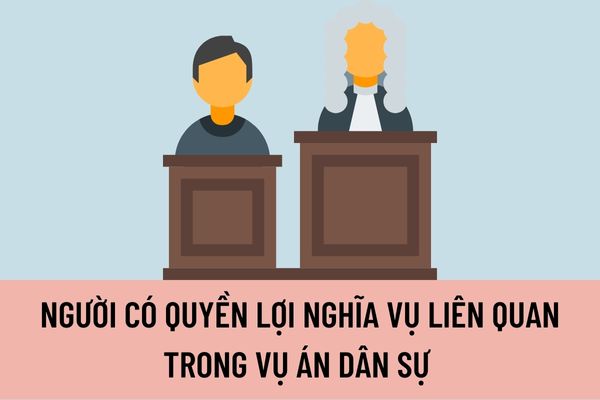Is It Necessary to Include the Current User of Pledged Assets in Civil Litigation Proceedings?
Is it necessary to involve the person using the mortgaged property in civil litigation proceedings?
Based on Subsection 2 Section III of Official Dispatch 206/TANDTC-PC of 2022, the following clarification is provided:
2. In a case of credit contract disputes where the plaintiff is a bank, the Court must review the legality of the mortgage contract that the bank has assessed before the loan was disbursed to use as a basis for resolving the case. If, after the bank has assessed the mortgaged property, a third party is using the asset (e.g., using the land or living in the house on the land), does the Court need to involve these individuals in the litigation process as parties with related rights and obligations?
According to Clause 4, Article 68 of the Civil Procedure Code of 2015:
“4. Individuals with related rights and obligations in a civil case are those who are neither plaintiffs nor defendants but whose rights and obligations are affected by the resolution of the civil case. They can either propose their own involvement or be proposed by other litigants, and be accepted by the Court to join the litigation as parties with related rights and obligations.
If the resolution of a civil case affects the rights and obligations of an individual and no one proposes their involvement, the Court must include them in the litigation as parties with related rights and obligations.”
In this case, the Court must consider whether the resolution of the case affects the rights and obligations of this third party. If it does, they must be included in the litigation as parties with related rights and obligations.
If the bank has assessed the mortgaged property and it is being used by someone, the Court must determine whether resolving the case affects the rights and obligations of this third party. If it does, they must be included in the litigation as parties with related rights and obligations.

Is it necessary to involve the person using the mortgaged property in civil litigation proceedings?
What are the regulations concerning parties with related rights and obligations in a civil case?
Based on Clause 4, Article 68 of the Civil Procedure Code of 2015, it is stipulated as follows:
Parties in civil cases
....
4. Individuals with related rights and obligations in a civil case are those who are neither plaintiffs nor defendants but whose rights and obligations are affected by the resolution of the civil case. They can either propose their own involvement or be proposed by other litigants, and be accepted by the Court to join the litigation as parties with related rights and obligations.
If the resolution of a civil case affects the rights and obligations of an individual and no one proposes their involvement, the Court must include them in the litigation as parties with related rights and obligations.
Individuals with related rights and obligations in a civil case are those who are neither plaintiffs nor defendants but whose rights and obligations are affected by the case resolution.
They can propose their involvement or be proposed by other litigants and be accepted by the Court to join the litigation as parties with related rights and obligations.
Note: If no one proposes involving the individual with related rights and obligations, the Court must include them in the litigation as parties with related rights and obligations.
What are the obligations of the mortgagor in the mortgage of assets?
The rights and obligations of the mortgagor are stipulated in Article 320 of the Civil Code 2015 as follows:
Obligations of the mortgagor include:
- Providing documents related to the mortgaged property where agreed by the parties unless otherwise provided by law.- Maintaining and safeguarding the mortgaged property.- Applying necessary measures to rectify issues, including stopping the use of the mortgaged property if the usage is causing depreciation or loss of value.- When the mortgaged property is damaged, the mortgagor must repair it or replace it with an equivalent asset within a reasonable time unless otherwise agreed.- Providing information about the status of the mortgaged property to the mortgagee.- Delivering the mortgaged property to the mortgagee for disposal under circumstances outlined in Article 299 of this Code.- Informing the mortgagee about third-party rights to the mortgaged property; if not informed, the mortgagee can cancel the mortgage contract and claim damages or maintain the contract and accept the third party's rights over the property.- Not selling, replacing, exchanging, or gifting the mortgaged property unless permitted under Clause 4 Article 321 of the Civil Code 2015 and Clause 5 Article 321 of the Civil Code 2015.
LawNet
